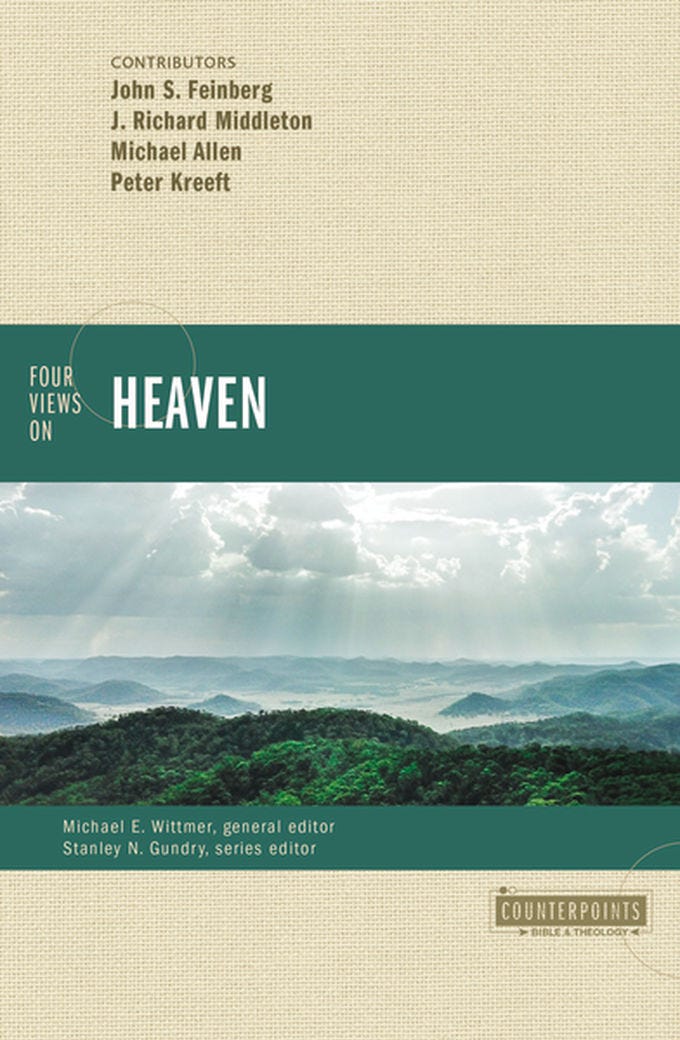Apologetics Methodology, Part 1
By David Baggett and Paul M. Gould | Bulletin Roundtable
In this Bulletin Roundtable, we asked our four regular contributors to discuss their approach to doing apologetics—their apologetics methodology. In Part 1 below, David Baggett and Paul M. Gould share their answers.
David Baggett
This month our query for consideration is our favored apologetic methodology. My doctoral training was in philosophy, and I remember when I first ventured into apologetics finding the preoccupation with apologetic methods a bit uninteresting. As the years have gone by, though, I have come to appreciate some of the subtlety and significance of the question, though the intellectual fun of it shouldn’t overshadow what’s most important. So for some this discussion will be eminently interesting, whereas for others it won’t begin to strike your proverbial fancy—and that’s okay.
Let me begin with a little story, in an effort to show that prior to discussing apologetic methodology we need to bear in mind some basic principles of logic and epistemology. Some months ago a student responded to a particular apologetic argument that he had read in one of the class texts by saying, “It’s not a good argument.” What dawned on me at the time was how multiply ambiguous such a claim is, at least as it stood. Much depends on what the student thought is required of a good argument. A surprisingly common mistake, for example, is that a good argument must be able to persuade all rational persons. This is most assuredly not the case.
Or the student might have thought the argument wasn’t a good one because it didn’t guarantee the conclusion. Again, this rookie mistake is far more common than one might think. It is confused because nondeductive arguments don’t even aspire to do such a thing. It’s a feature of such arguments that they don’t guarantee their conclusions, but no weakness.
A valid deductive argument features premises that guarantee the conclusion, but a great many deductive arguments involving controversial premises don’t end up providing anything like certainty for the conclusions—unless the premises themselves are known with objective certainty. (Which is practically never; subjective certainty isn’t enough.)
Others might think a good argument has to render the conclusion more likely true than false. But the failure of such an argument to do this by no means suggests the argument is not a good one. It may simply aspire to, and succeed at, making the conclusion more likely than it would otherwise be, without making its likelihood greater than 50%. As such it might be effectively used in conjunction with other arguments, adding its contribution to theirs.
So when one says of an argument that it isn’t a good one, we can see that such a characterization is awfully coarse-grained. Bearing such complexities in mind, let’s now briefly consider five apologetic methodologies: (1) presuppositionalism, (2) Reformed epistemology, (3) evidential apologetics, (4) classical apologetics, and (5) cumulative case apologetics. There’s some overlap between these categories, of course, and something to learn from all of them, but for what it’s worth, I will offer my brief assessment of each and my own considered preferences.
Presuppositionalism is something like deductivism on steroids—according to which Christianity is not just the best or only explanation, but the only possible explanation (of whatever is being explained—meaning, truth, morality, etc.). As such I shy away from it, although there are variants of transcendental reasoning—which asks what conditions need to be in place in order for us to have certain experiences—that do appeal to me. In general, though, I find presuppositionalism to be overly rigid and, quite often, problematically circular.
Reformed epistemology is fascinating when it comes to an epistemological theory, and I’m drawn to the idea that folks can have firm knowledge of, say, God’s existence or the truth of Christianity without being able to adduce a number of discursive arguments. I suspect God can and does make his reality and truth known to us without such arguments, but I don’t find any of this all that relevant to the apologetic task, which is designed to show others good reasons for taking theism or Christianity seriously (and not merely explain how we might know these things ourselves).
Evidential apologetics involves a one-step process of going straight to the truth of Christianity by making the case for the resurrection of Jesus based on the “minimal facts” like Gary Habermas or Mike Licona adeptly adduce (the disciples were convinced they had seen the risen Christ, for example). This form of argumentation has a great deal going for it, but I see no reason why we should limit ourselves to such historical arguments alone when the evidence we have at our disposal for theism and Christianity also includes scientific and philosophical arguments.
For such reasons I’m more drawn to classical apologetics, which cites a range of arguments for God’s existence, first, and then for Christianity, second. Ontological, cosmological, teleological, and moral arguments can help with the first stage of the argument, and the historical arguments can achieve the second. Lately I have been exploring the possibility that the moral argument might at least hint at something more fine-grained than theism per se; that is an exciting research agenda.
When all of these various arguments are put together, their cumulative force can become quite strong and deficiencies rectified. Indeed, even within some of the arguments—the moral argument, for example—cumulative cases can be built. Jerry Walls and I have argued for a four-fold cumulative moral argument. Recently at MoralApologetics.com, Zach Breitenbach argued for a cumulative epistemic moral argument made up of arguments by the likes of Al Plantinga, Mark Linville, Scott Smith, and Angus Ritchie. The imbedded arguments within arguments can almost begin to resemble Russian nesting dolls.
At Houston Baptist University, where I teach, we divide our Masters in Apologetics program into two tiers: a Philosophical track, and a Cultural apologetics track. The Philosophical track (where I teach primarily) focuses on the standard philosophical fare—the classical arguments for God’s existence—mining such arguments for their riches, developing deep competence in their use, and facility at anticipating and answering principled and intelligent objections. The Cultural track employs literature, popular culture, poetry, and even music to focus on integrating an imaginative and rational defense of the faith, studying a range of issues in philosophy, literature and the arts, and cultural issues in order to analyze and engage with culture at both the intellectual and popular level (including creative work).
Of course it would be a mistake for anyone to think that choosing either track altogether excludes the other, which is why there are several core courses common to both. Cultural apologists need philosophical rigor and logical precision, and philosophical apologists should cultivate their imaginations and strive to speak in the language of their culture, and they certainly shouldn’t be averse to drawing rich and colorful illustrations from literature or even popular culture. This is why the Center for the Foundations of Ethics at HBU has recently launched, as part of Moral Apologetics Press, a new book series on apologetics and pop culture edited by my wife, Marybeth Baggett.
Finally, as a recent series on Cliff Williams’ book here at the WB highlighted (part 1, 2, 3, 4), there are also deep existential reasons to believe in God and Christianity that can supplement and augment explicit or implicit evidential ones, which brings to mind my final point. Whenever I study the fertile history of the moral argument, I am always struck by the expansive epistemology, rich empiricism, and broad rationality of the luminaries in the field—from William Sorley to A. E. Taylor, from John Henry Newman to Clement Webb. Retaining openness to the deliverances of literature and the affective, aesthetics and philosophy, poetry and culture, they practiced deep attentiveness to the evidence, read widely with capacious hearts and minds, aimed for excellence in both their arguments and interactions, lived with arguments for decades, and allowed ideas to marinate and simmer, vividly seeing their relevance to all of life. We would be wise to emulate their spirit, patience, and rigor.
Paul M. Gould
The question of my preferred apologetic method is difficult for me to answer because I tend to be a kind of pluralist about these things, mixing and matching what works depending on the person in front of me and his interests and expertise. As a partial answer to this question, I’d say three things. First, I distinguish between a model and a method in apologetics. I’ve advanced a model for apologetics in my book Cultural Apologetics. That model is based on Paul’s encounter with the Greeks (and audience unlike his own) and involves first identifying a starting point in culture and then building a bridge from that starting point to Jesus and the gospel, answering objections along the way. This model is neutral concerning apologetic methods and can be employed by any of the current methods on offer (classical, evidentialist, Reformed epistemology, cumulative case, presuppositional). Further, my model distinguishes between global and local concerns. In other words, apologetics ought to care about how ideas are taking shape at the level of culture-shaping institutions (global concerns) and the level of individual lives (local concerns). Finally, I think my model is more holistic and inclusive than most apologetic models (such as philosophical, historical, rational, imaginative, moral, and so on) on offer, taking into account human anthropology and a theology of culture and cultural change.
Second, if pressed, I suppose I’m somewhat of a classical apologist. The method of classical apologetics is sometimes called a two-step model: first you argue to the existence of generic theism, then you argue specifically to the truth of Christianity. In the first step you focus on arguments for God: the cosmological, teleological, moral, aesthetic, and more. In the second step you consider the distinct claims of Jesus Christ to stand in the place of deity and the evidence of the resurrection as verification of those claims. This all seems well and good to me, especially in a culture where belief in God is no longer automatic.
Third, moving from theory to practice, when considering my forthcoming book, A Good and True Story (coming in November 2022, Brazos Press), my method is somewhat difficult to discern: it could be construed as classical, evidential, or cumulative case. In the book, I take the reader (written for unbelievers) on a journey that blends reason and imagination, story and argument as we look together at eleven features of our world that point to something beyond this world: the universe, life, species, humans, morality, meaning, happiness, pain, love, beauty, and religion. My central metaphor is that of a cairn. Just as cairns guide the hiker on a journey to the summit of a mountain, so too do these eleven clues (or stones) guide us on our journey to discover the true story of the world. Is there a discernible methodology to my madness? Yes, I think. Does it neatly map onto the more popular ways of categorizing apologetic methods? Maybe. I’m fine with that vagueness: it seems to be truer to the way humans experience this world as we attempt to see and understand its meaning.
Image by Gerd Altmann from Pixabay
Four Views on Heaven
Discover and understand the different Christian views of what heaven will be like.
Christians from a variety of denominations and traditions are in the middle of an important conversation about the final destiny of the saved. Scholars such as N. T. Wright and J. Richard Middleton have pushed back against the traditional view of heaven, and now some Christians are pushing back against them for fear that talk about the earthiness of our final hope distracts our attention from Jesus.
In the familiar Counterpoints format, Four Views on Heaven brings together a well-rounded discussion and highlights similarities and differences of the current views on heaven. Each author presents their strongest biblical case for their position, followed by responses and a rejoinder that model a respectful tone.
Positions and contributors include:
Traditional Heaven — our destiny is to leave earth and live forever in heaven where we will rest, worship, and serve God. (John S. Feinberg)
Restored Earth — emphasizes that the saved will live forever with Jesus on this restored planet, enjoying ordinary human activities in our redeemed state. (J. Richard Middleton)
Heavenly Earth — a balanced view that seeks to highlight both the strengths and weaknesses of the heavenly and earthly views. (Michael Allen)
Roman Catholic Beatific Vision — stresses the intellectual component of salvation, though it encompasses the whole of human experience of joy, happiness coming from seeing God finally face-to-face. (Peter Kreeft)
Each volume of the Counterpoints series is a one-stop reference that allows readers to evaluate the different positions on a specific issue and form their own, educated opinion.
Find Four Views on Heaven at Amazon, Zondervan Academic, and other major booksellers.
* This is a sponsored post.
News
Miracles Are Outlasting the Arguments Against Them
What are the Best Apologetics Resources for Students?
Changing Attitudes Toward the Resurrection of Jesus
ICYMI: Transhumanism, False Reenchantment, and Rage against the Given
Video: The Terrible Consequences of Atheism
Video: Do We Have the Right Books in Our Canon?
Video: David Hunt - Free Will and Personal Agency
(*The views expressed in the articles and media linked to do not necessarily represent the views of the editors of The Worldview Bulletin.)
Book Deals and Resources
Look here for Faithlife’s free eBook of the Month.
Visit here to get the Logos Free Book of the Month. You can download the free version of Logos which will allow you to access the monthly free books. Logos 9 is a great investment, though, and has tons of tools that make Bible study easier and richer. New users can get 50% off of the Logos 9 Fundamentals package, which discounts it to $49.99.
Get a second free book of the month here.
See the Logos Monthly Sale for dozens of good deals.
The Faithlife Free Audiobook of the Month for February is Orthodoxy by G. K. Chesteron
The Christianaudio free download for January is Sacred Endurance by Trillia J. Newbell
Audiobook: A Hobbit, A Wardrobe and a Great War by Joseph Loconte, $3.99
Audiobook: Praying with Paul: A Call to Spiritual Formation by D. A. Carson, $2.99
Stream the ESV Bible for free on ESV.org or the ESV Bible app on iOs and Android. Read by award-winning modern hymn writer Kristyn Getty. You can also audio stream the Bible in a few different translations using the new Bible Gateway Audio app.
Until Feb. 8th, get Ethical Realism in the Cambridge Elements in Ethics series free.
Eerdmans February eBook Sale – 101 eBooks for $4.99
In Quest of the Historical Adam: A Biblical and Scientific Exploration by William Lane Craig, $4.99
The Love of God edited by Christopher Morgan, $6.99
From Glory to Golgotha: Controversial Issues in the Life of Christ by Donald Macleod, $2.99
Encounters with Jesus: Unexpected Answers to Life's Biggest Questions by Timothy Keller, $5.49
The Four Loves by C. S. Lewis, $2.99
God's Love: How the Infinite God Cares for His Children by R. C. Sproul, $1.99
Redemption Accomplished and Applied by John Murray, $4.99
Changed into His Likeness: A Biblical Theology of Personal Transformation by J. Gary Millar, $6.99
Out of the Silent Planet: (Space Trilogy, Book One) by C. S. Lewis, $1.99
Surprised by Laughter Revised and Updated: The Comic World of C. S. Lewis by Terry Lindvall, $4.99
Loving God with Your Mind: Essays in Honor of J. P. Moreland ed. by Paul Gould and Richard Brian Davis, $2.99
Become a Patron
Would you like to help us in our work of bringing the best resources in Christian worldview and apologetics to believers around the world? If so, we invite you to become a patron at our Patreon site. Patrons receive exclusive content from the team as well as autographed books. We welcome your support as we seek to make the Bulletin one of the best resources available for proclaiming and defending the Christian worldview!






This is a well thought out approach to apologetic methodology. There is much theory to argue over on the philosophical side. It is the practical side that means as much. How one approaches the questioner/skeptic is paramount. Having your ducks in a row does not necessarily win the heart of the person you're speaking with. I trained in classical apologetics and find a lot of commonality with evidential apologetics which I mostly employ, knowing much of it is relevant to step 2 in classical apologetics. In any event, I must listen, not anticipate, understand before answer, and love the person I'm speaking with. If I don't employ these methods I am that clanging bell.
Two factors need to be kept on the table in this discussion of method. First is that we are doing *Christian* apologetics, so we can fairly proceed from a Christian standpoint. Our apologetics should be informed by our Christian theology. Second (and to respond to the howls that may come from that first claim), if we don't start from our own Christian presuppositions, from what presuppositions shall we begin ? Why accept a requirement that we step outside of our Christian worldview and work our way back in? If we step outside of a Christian worldview, into what worldview do we step? Certainly not onto neutral ground. People who require that are privileging their own worldview. There may be one out there, but I haven't encountered a metaphysical naturalist who accepts the requirement that he step outside of his worldview in order to work his way back in. If it isn't rationally justifiable for us to start from within a Christian worldview, how is it rationally justifiable to require that we approach it from some other worldview that hasn't itself been shown to be a reliable and authoritative measure? That requirement itself needs to be defended. Otherwise it's cheating.